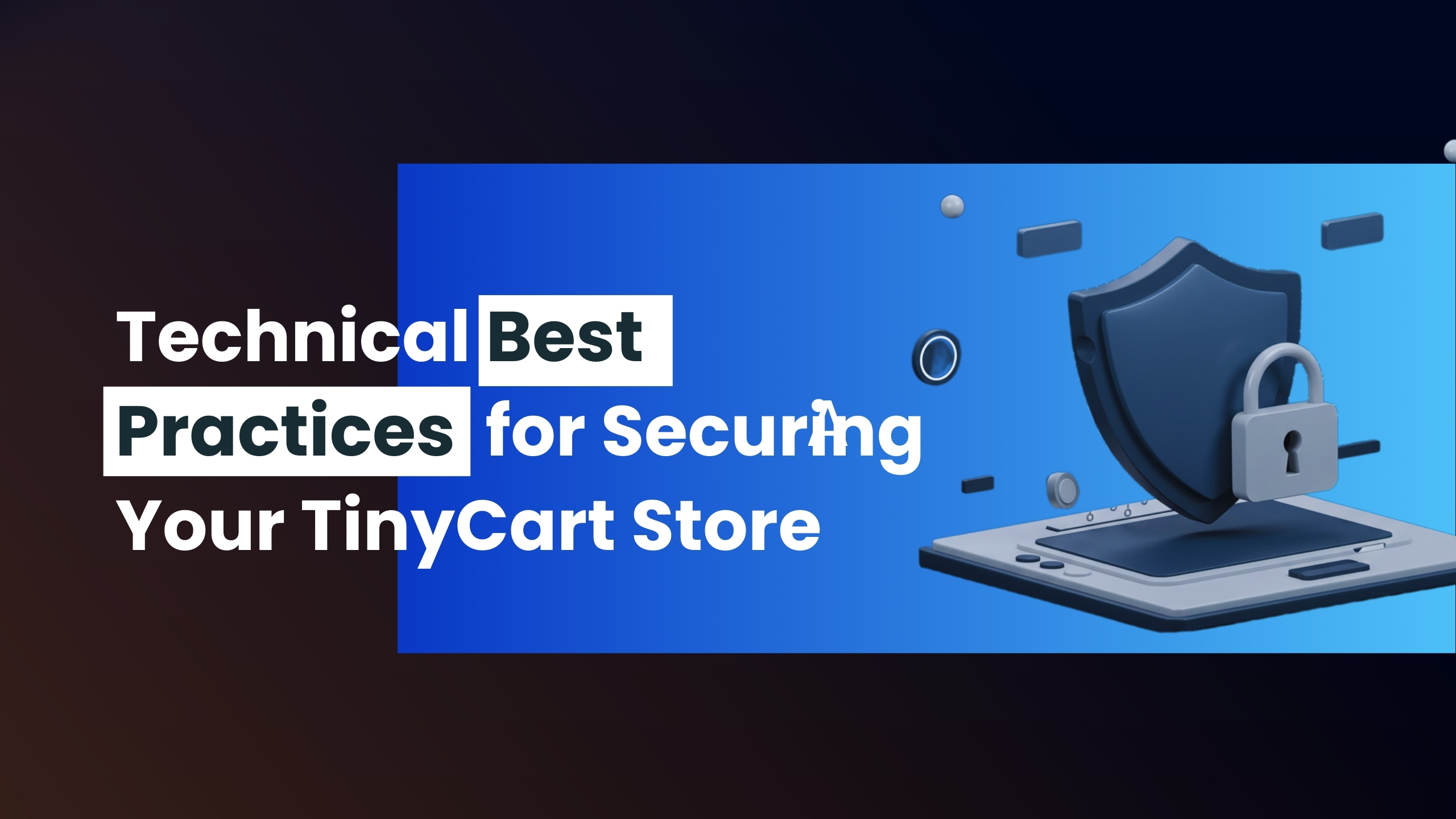Technical Best Practices for Securing Your TinyCart Store
In today’s digital marketplace, securing your TinyCart store is essential for protecting sensitive customer data, maintaining trust, and ensuring smooth business operations. With cyber threats evolving constantly, implementing robust security measures is not optional—it’s a necessity. This guide outlines proven technical best practices to secure your TinyCart store, from SSL certification to regular security audits, enriched with local insights and multimedia resources designed specifically for Australian e-commerce.
- Understand TinyCart’s Built-In Security Features
a. Default Protections:
TinyCart is designed with secure coding practices and supports essential security measures like SSL certification.
b. Leveraging Built-In Tools:
Familiarize yourself with TinyCart’s documentation to understand existing security features and learn how to extend them.
Actionable Tip:
Review the official TinyCart security documentation to identify enhancements you can implement.
Implement SSL Certificates and Secure Hosting
SSL Certification:
Ensure your store uses HTTPS by installing an SSL certificate, which encrypts data between your store and your customers.
Secure Hosting:
Choose a hosting provider with strong security protocols (regular updates, malware scanning, and robust firewall protections).
Australian e-commerce sites that implement SSL and secure hosting report up to a 25% reduction in customer drop-off due to security concerns.
Actionable Tip:
Verify your SSL configuration using tools like SSL Labs and check that your hosting environment is regularly updated.
- Secure Payment Gateway Integration
a. Validate API Credentials:
Confirm that all payment gateway integrations use current and correctly entered API keys.
b. Encryption and Tokenization:
Ensure that all transaction data is encrypted and tokenized to protect sensitive information.
c. Regular Testing:
Use sandbox environments to test the payment process and address any vulnerabilities.
Actionable Tip:
Schedule monthly checks on your payment gateway settings and update your API keys as needed.
- Enable Two-Factor Authentication (2FA)
a. Admin Access Security:
Enable 2FA for your TinyCart admin panel to add an extra layer of protection against unauthorized access.
b. Customer Authentication:
Consider extending 2FA to your customer login process for enhanced data security.
Actionable Tip:
Implement 2FA immediately and educate your team about its benefits.
- Regular Backups and Data Protection
a. Automated Backups:
Schedule regular backups of your store’s data, including product information, customer details, and transaction records.
b. Secure Storage:
Store backups in a secure, off-site location to ensure quick recovery in case of a breach.
Actionable Tip:
Set up an automated backup system and test your recovery process quarterly.
- Firewall Configuration and Server Security
a. Configure Firewalls:
Set up firewalls to protect your server from unauthorized access and to block suspicious traffic.
b. Monitor Server Activity:
Use intrusion detection systems (IDS) and log monitoring tools to identify and respond to potential threats promptly.
Actionable Tip:
Work with your hosting provider to optimize your firewall settings and apply security patches regularly.
- Regular Security Audits and Software Updates
- Scheduled Audits:
Conduct comprehensive security audits on a monthly and quarterly basis to identify vulnerabilities. - Software and Plugin Updates:
Ensure that TinyCart, themes, and all plugins are updated to their latest versions to minimize security risks.
Actionable Tip:
Establish a routine maintenance schedule for updates, backups, and security audits.
- Troubleshooting and Incident Response
Develop an Incident Response Plan:
Create a clear plan for responding to security breaches, including communication protocols and recovery procedures.
Maintain a Troubleshooting Log:
Document any security issues and their resolutions to build a reference for future incidents.
Actionable Tip:
Draft and regularly update an incident response plan, and ensure all team members are familiar with it.
- Multimedia and Interactive Resources
Interactive Flowchart:
Download our interactive security flowchart that guides you through the troubleshooting and maintenance process step-by-step.
Video Tutorial:
Watch a concise video demonstrating how to configure 2FA, update SSL settings, and run security audits effectively.
Resource Hub:
Refer to trusted sources like the Google Security Blog and OWASP for the latest best practices.
- Expanded FAQs
1. Why is SSL critical for my TinyCart store?
SSL encrypts data between your store and customers, protecting sensitive information and boosting customer trust.
2. How does two-factor authentication improve security?
2FA adds an extra verification layer, significantly reducing the risk of unauthorized access.
3. What steps should I take if I experience a security breach?
Follow your incident response plan, document the breach, secure your systems, and consult cybersecurity experts.
4. How often should I perform security audits?
Conduct monthly reviews and comprehensive quarterly audits to ensure ongoing security.
5. Where can I find additional security resources?
Trusted sources include business.gov.au, the Google Security Blog, OWASP, and cybersecurity courses on LinkedIn Learning.
Key Takeaways
- Data Protection: Implement SSL, secure hosting, and regular backups to safeguard customer data.
- Access Control: Use two-factor authentication and optimize firewall settings to prevent unauthorized access.
- Ongoing Maintenance: Regular security audits and software updates are essential for long-term protection.
- Proactive Response: Develop and maintain an incident response plan to quickly address security breaches.
- Interactive Learning: Leverage multimedia resources like flowcharts, video tutorials, and webinars to continuously enhance your security strategy.
Conclusion
Securing your TinyCart store is an ongoing process that requires diligence, proactive measures, and continuous learning. By implementing these technical best practices—ranging from SSL certification and 2FA to regular backups and detailed security audits—you can protect your e-commerce platform, build customer trust, and ensure sustainable growth. Use our interactive resources and commit to ongoing maintenance to keep your TinyCart store secure and resilient against evolving cyber threats.

